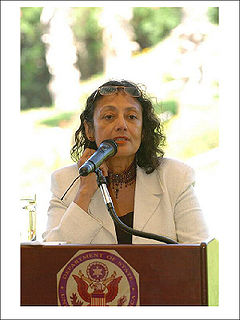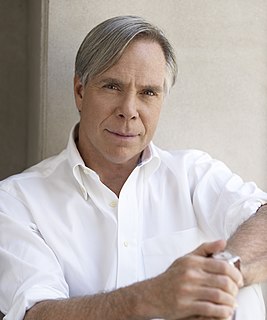A Quote by Peter Drucker
Mother Teresa's numerical results were not her greatest contribution. Instead, she made the world-and especially India-conscious of compassion.
Related Quotes
Mother Teresa's detractors have accused her of overemphasizing Calcuttans' destitution and of coercing conversion from the defenseless. In the context of lost causes, Mother Teresa took on battles she knew she could win. Taken together, it seems to me, the criticisms of her work do not undermine or topple her overall achievement.
Many persons who are not conversant with mathematical studies imagine that because the business of [Babbage’s Analytical Engine] is to give its results in numerical notation, the nature of its processes must consequently be arithmetical and numerical, rather than algebraical and analytical. This is an error. The engine can arrange and combine its numerical quantities exactly as if they were letters or any other general symbols; and in fact it might bring out its results in algebraical notation, were provisions made accordingly.
Mother Teresas detractors have accused her of overemphasizing Calcuttans destitution and of coercing conversion from the defenseless. In the context of lost causes, Mother Teresa took on battles she knew she could win. Taken together, it seems to me, the criticisms of her work do not undermine or topple her overall achievement.
Her [Eleanor Roosevelt] father was the love of her life. Her father always made her feel wanted, made her feel loved, where her mother made her feel, you know, unloved, judged harshly, never up to par. And she was her father's favorite, and her mother's unfavorite. So her father was the man that she went to for comfort in her imaginings.
That's what I do. I just let Mother Earth use me, in many, many instances, especially when I am working with pollution. She is a very real Spirit - she is your mother, and if you open to Her, she can come in and use you in a way that is very powerful. That is what Mother Teresa has done, by being selfless.
Mother Teresa was a hero of mine for a long time. I just like the way she took on the world from a very humble place. She has a great quote. When she was leaving her monestary to start Sisters of Charity, she had two pennies. She was asked by a head priest what she could possibly do with two pennies. She said, 'Nothing. But with two pennies and God, I can do anything'.
In my earliest of years, my mother was a huge force in my life. She was for all intents and purposes, a single parent. My father had abandoned us. He was an alcoholic and a physical abuser. My mother lived through that tyranny and made her living as a domestic worker. She was uneducated but she brought high principles and decent values into our existence, and she set lofty goals for herself and for her children. We were forever inspired by her strength and by her resistance to racism and to fascism.
I feel strongly that Mother Teresa’s life has a great message for young people. We so often feel powerless to do anything about the many problems in the world around us. We are so often left to wonder whether one person can possibly make a difference. Mother Teresa said yes, we can. Her life was resounding proof that it is possible
I always felt bad for Mother Teresa. Mother Teresa lived a whole life helping starving children and dying villages, but she could never be declared a saint 'cause she never actually performed a miracle. And it was towards the end, she was desperate to perform a miracle, so she would go up to starving children and go, 'What's that behind your ear? It's a quarter!
Almost all the greatest discoveries in astronomy have resulted from what we have elsewhere termed Residual Phenomena, of a qualitative or numerical kind, of such portions of the numerical or quantitative results of observation as remain outstanding and unaccounted for, after subducting and allowing for all that would result from the strict application of known principles.
My main contribution was to demolish the myths that India couldn't economically afford nuclear weapons. Of course I made these political arguments too, but the main contribution I made was a study of the cost of acquiring a credible deterrent, and show that it was within the budget of India, and it would not be an unbearable burden.



































